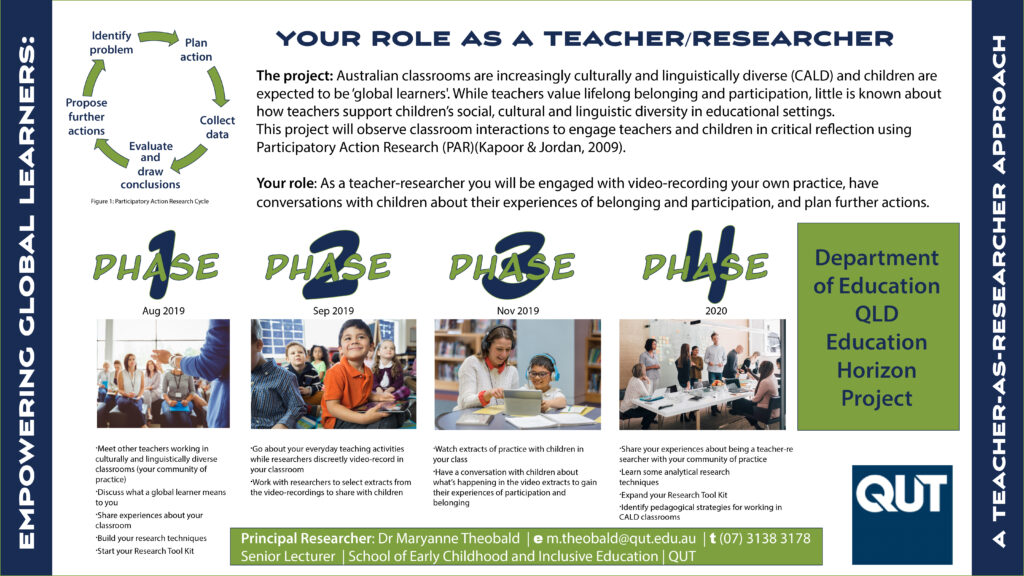Research Design
This co-designed project used a teacher-as-researcher approach where teachers were co-researchers, an innovation on a recognised method of Participatory Action Research (PAR) (Kapoor & Jordan, 2009). The project involved Principals, Prep teachers and students enrolled in prep classrooms across 2 Queensland State schools from the Brisbane Metropolitan Region.
The teacher-researchers engaged in workshops to ignite their curiosity and understanding of the process of being a teacher-researcher. Throughout the workshops teacher-researchers were engaged with identifying the topic and the design of the research. This project collected video-recordings of classroom practices and researchers supported teachers to gain children’s reflections on these video-recordings. As ‘insiders to practice’, children were well positioned to provide their views on their classroom activities and experiences of participation, communication, and their own sense of belonging. The video-recordings provided exemplars of classroom practice for analysis. Repeated viewings of the video-recorded interactions enabled teacher-researchers to explicate talk and identify such actions as the openings, closings, actions, turns of talk, interruptions, use of digital tools/resources within the interaction. Exemplars of the video-recordings showing teaching practices, the activities of teachers-as-researchers and views of children were used for the resulting online modules.
The project had four phases:
Phase 1: Becoming a Teacher-researcher: Identifying the topic
Workshop 1 brought together teacher-researchers and researchers to investigate the topic of a ‘global child’ and supporting diverse learners, from a participant perspective.
Phase 2: Investigating everyday practice: Video-ethnography
QUT researchers conducted video-recording activities in the teacher-researchers’ classroom over four days. This phase was foundational for the following phases.
Phase 3: Empowering learners: Video-stimulated accounts
Teacher-researchers conducted video-stimulated accounts with learners to gain their perspectives and become pedagogical informants.
Phase 4: Being a teacher-researcher: Analysis
Workshop 2 supported teacher-researchers to engage with the analytical method of conversation analysis to reflect on their own practices and the perspectives of the children in their classrooms. This analysis contributed to a strengths-based approach for professional learning modules that a) outlined the innovative professional learning model focusing on the teacher as researcher and b) highlighted exemplary practices for inclusive practice to empower all learners as effective global citizens.
